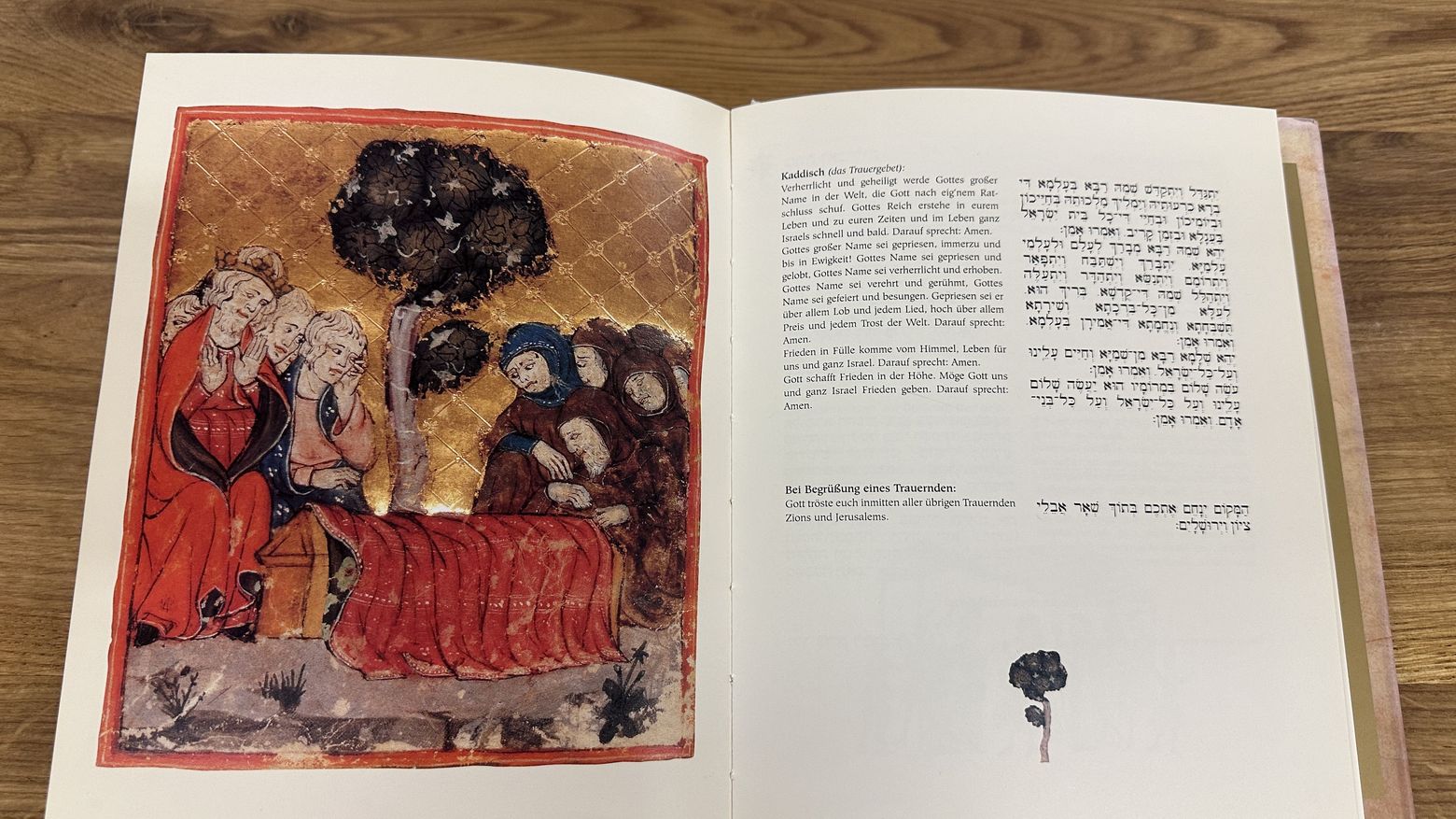We don’t know what the next months and years will bring, and the consequences for the region and for the world are not yet clear. In this way, the situation resembles the days and weeks that followed 9/11.
On 7 October, the terrorist organisation Hamas, with the help of the Palestinian Islamic Jihad, carried out a brutal attack on the civilian population in Israel. People were tortured, raped, savagely murdered. This terrorist attack was not a struggle for freedom; its only purpose was to terrorise the innocent. Terror does not discriminate – to terror all people are the same. The attackers didn’t care whether their victims were men, women, children, whether they were Jewish or Muslim, agnostic or Christian, infant or Holocaust survivor, healthy or wheelchair-bound – more and more pictures are coming out and I’m hearing more and more about the fates of individuals, as I’ve been in contact with many people I know from my time studying in Israel. More than 1,400 people have suffered and died and I can hardly find the words to express my grief. An Orthodox rabbi friend of mine living in Israel has similarily described to me how unbearably difficult it is for him to find words at the countless funerals he’s been to.
The terror of Hamas and the Palestinian Islamic Jihad does not care. Almost two hundred people, both young and old, healthy and injured, have been kidnapped in and taken to the Gaza Strip. Often their relatives don’t know how they are, whether they’re dead or alive, whether they’re receiving medical care in Gaza or are being raped and tortured in those underground cells in Gaza where the terrorist organisation Hamas has been torturing and murdering its political opponents for many years. For other hostages, we are well aware of their suffering because it’s over the internet.
Perversely, the terror inflicted by Hamas – and especially this latest taking of hostages – has always taken its own civilian population hostage as well, with no regard for whether they are children or elderly women, staunch opponents of Hamas or one of their own supporters. Terror doesn’t care. A humanitarian crisis in Gaza is imminent, people are without water and electricity, almost half of Gaza’s civilian population heeded the call of the Israeli military and are fleeing south, according to estimates by the UN Office for Emergency Relief (UN OCHA). More than 3,000 people have been killed in the Gaza Strip so far, according to UN OCHA. Men, women, children. There are many different opinions about whether the current reaction of the Israeli military is appropriate and proportionate, whether it is the only possible way forward, the wisest choice in the long run. There are also questions about whether Israeli policy has done anything to bring this decades-long conflict closer to a solution. But one thing is clear: The terrorists of 7 October knew full well that this kind of reaction was coming and what the consequences would be for hundreds of thousands of civilians in Gaza. They have deemed these consequences as acceptable. And still do, when they prevent people from fleeing to the South.
On the evening of 17 October, there was an explosion at the Al Ahli Arab Hospital compound in Gaza City, where hundreds of people had previously sought shelter. There are many deaths to mourn. The hospital is a project partner of Diakonie Katastrophenhilfe and we have close links to the people who work there. I grieve for the lives that have been destroyed.
Hospitals are sacrosanct according to humanitarian principles; they must remain protected spaces. Humanitarian principles must be respected, international humanitarian law must be upheld, safe zones for the civilian population are required, reliable escape corridors and supplies are needed – preferably via the border crossing to Egypt – and the civilian population in Gaza must be protected! I hope that these appeals will be heard, but I fear that they will fall on deaf ears, especially with Hamas. Because terror does not care about civilian victims. The hospital tragedy will only strengthen Hamas and extremist thinking – and complicate the efforts of those seeking a solution. Therefore, in this heated media situation, it is absolutely necessary not to react to every headline, but to allow space for reflection as well as critical thinking. I was profoundly impressed when a doctor at the hospital, who was caring for the dead and injured and was certainly under incredible pressure, said on television that he wasn’t sure who was responsible for the missile – at a time when many others thought they already knew exactly what had happened and what would have to follow.
Our project partners in both Israel and the Palestinian Territories have been working towards a future and have been aiming for solutions for peaceful coexistence in the region for years. We support four project partnerships in the Gaza Strip. Our long-term partners work in the areas of post-natal care for mothers and their children, psychological and therapeutic support, non-violent conflict management, and vocational and extracurricular education. Our partners work to combat violence and extremism and strive for peace, human rights and opportunities for young people. They see their work as strengthening civil society, and it will take a strong civil society to ensure a prosperous future for the region.
The war is also having an impact here at home. In recent years, anti-Semitism in Germany and across Europe has become louder and more violent. Jewish people in Germany have been attacked, and the shooting in the synagogue in Halle seemed to be a sad climax to this. The terror going on in Israel is stirring up further fears here as well. “There’s nothing we can do,” is a statement I’ve been hearing a lot in recent days. That’s true – and at the same time it isn’t. Because what each and every one of us can do, especially these days, is to stand up against anti-Semitism in Germany in a very practical way. Many Jewish children did not attend school last Friday because their parents were afraid. We’re seeing the star of David graffitied on doors of people’s flats, attacks on Jewish institutions, hate slogans appearing on Sonnenallee in Berlin, anti-Muslim racism, especially from right-wing circles, hateful written and visual content, especially on our children’s social media profiles, brimming with Israel-related anti-Semitism and blind partisanship. This helps no one, not even the Palestinian civilian population! This is where we all can do something ...we have to!!





